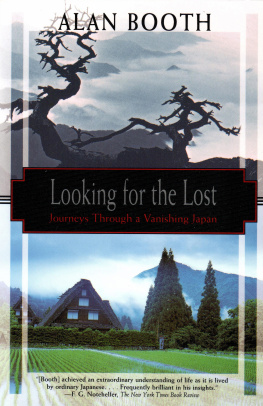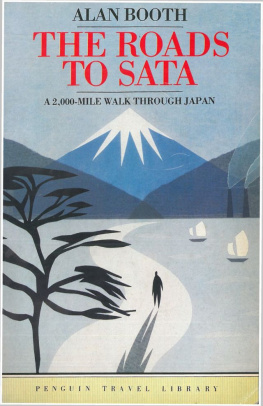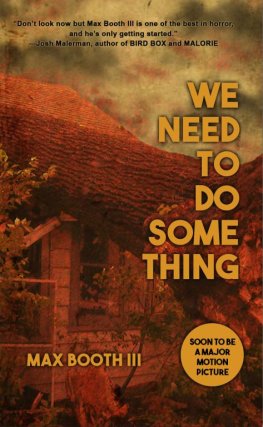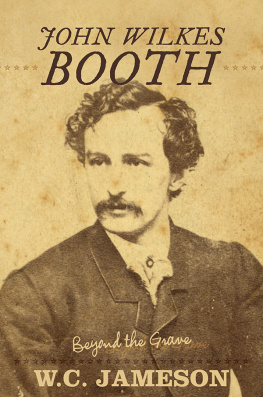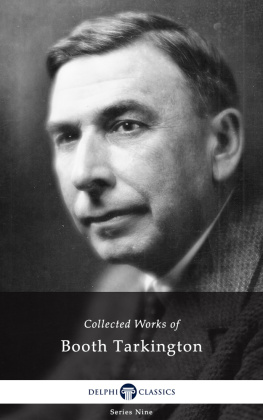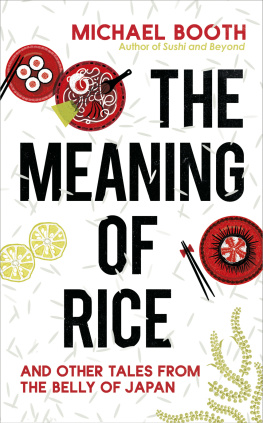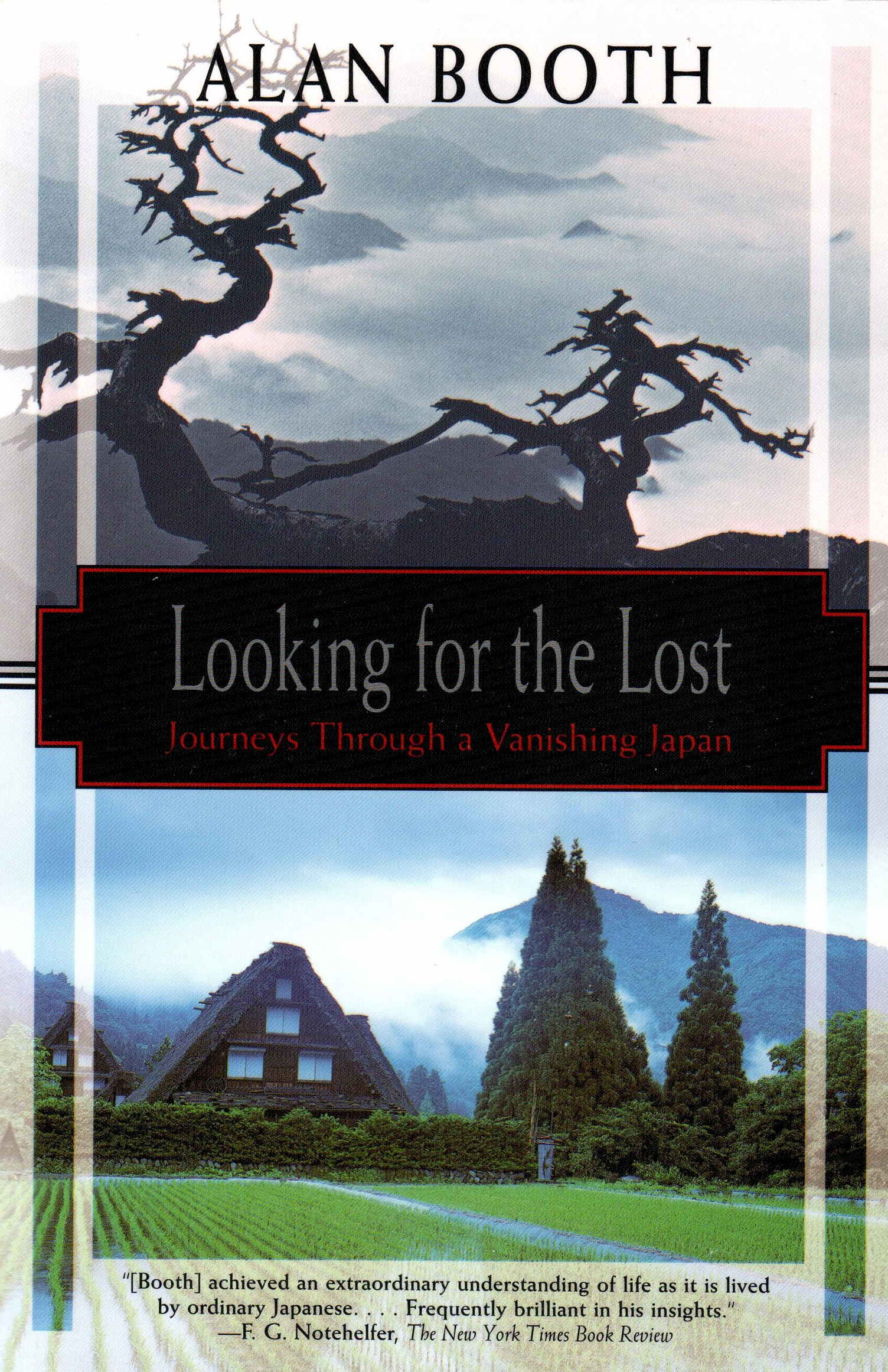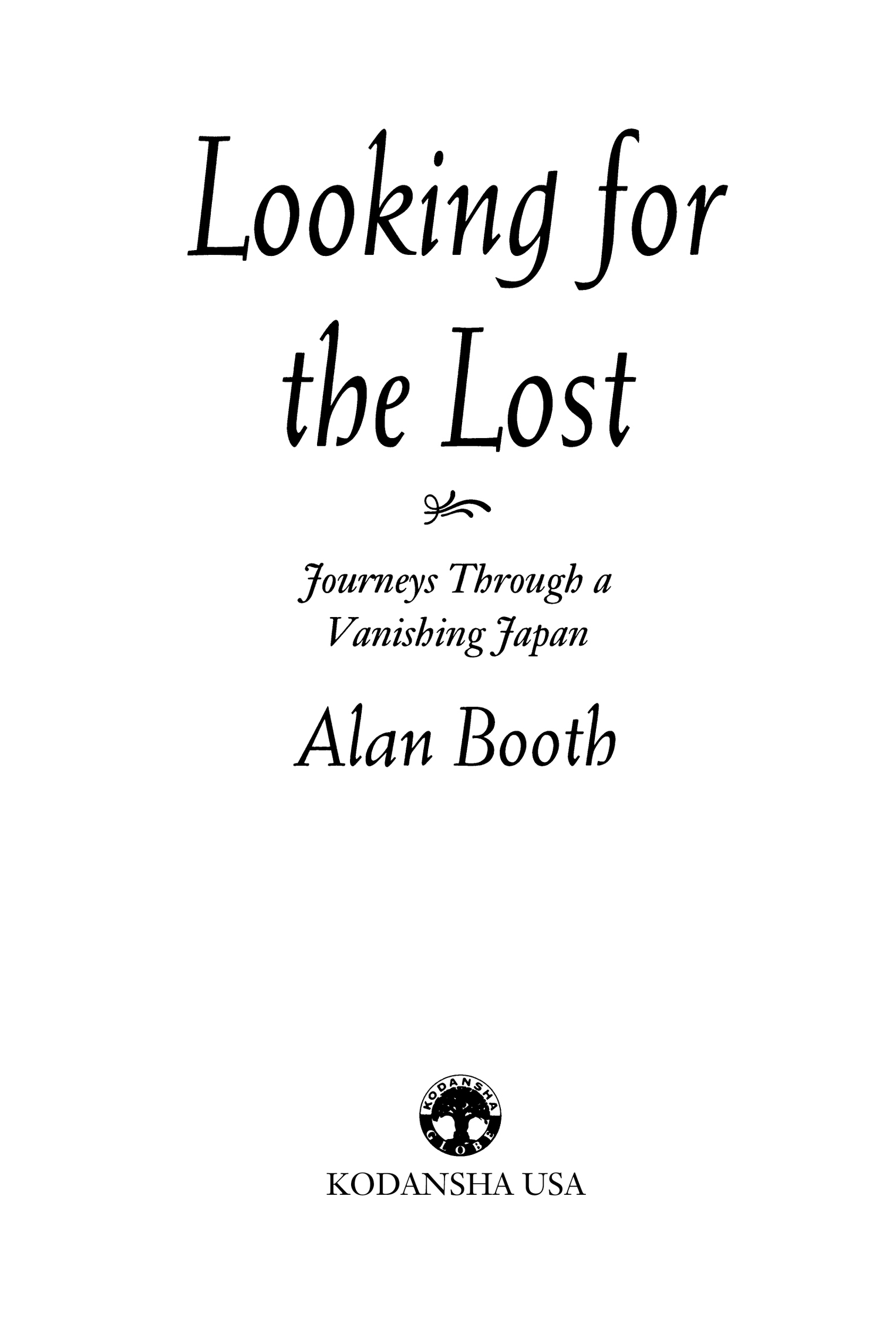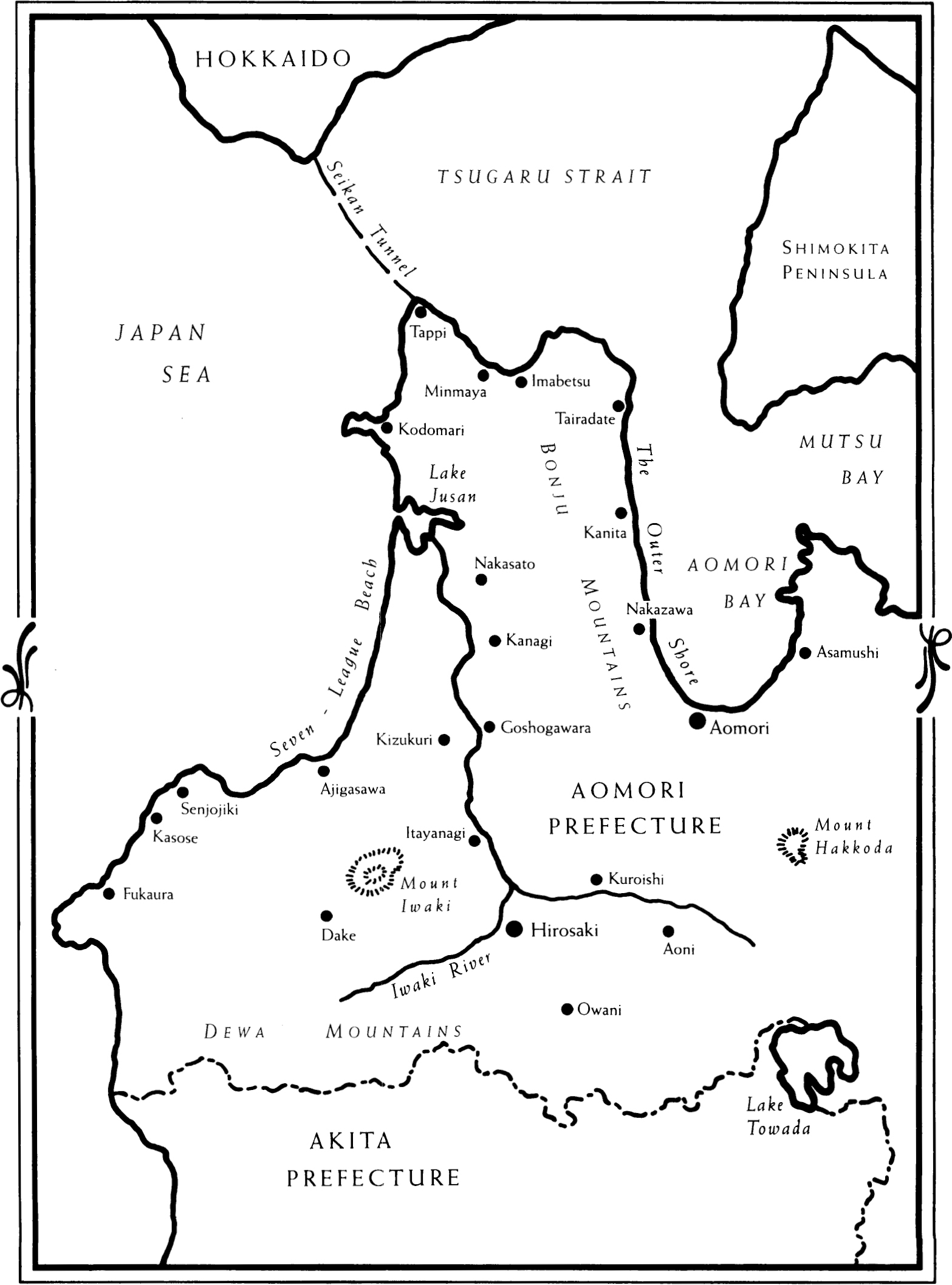Contents
Praise for Looking for the Lost
Imagine a personal tour through Buckingham Palace given by an aficionado with the erudition of Samuel Johnson and the irascible wit of Mark Twain, a tour that would avoid all the main rooms of the castle and focus on the hidden moat, the mousetraps, [and] the disused toilet, and you will have some idea of what Booth is up to. In his thoughtful, funny, erudite, and endlessly entertaining travel book, Alan Booth gives us an insiders Japan most of us have never seen before.
Alan Jolis, The International Herald Tribune
I enjoyed Looking for the Lost enormously. To travel with Alan Booth is to travel in very civilized company indeed, but also close to the ground. He has a mind that illuminates and enlivens everything it encounters.
Nigel Barley, author of The Innocent Anthropologist
Booth transmits his fascination with lifes small moments and the countrysdetails and thereby makes of his book a truly engaging, fascinating look at the Japan that doesnt make the headlines.
Mary Ellen Sullivan, Booklist
There are certain things in Japan that only Alan Booth had the ability to convey in writing. His controlled exuberance made for an inimitable style which, combined with his refusal to be taken in by appearances and his underlying compassion for the people he lived amongst, made him an exceptional writer.
Karel van Wolferen, author of The Enigma of Japanese Power
[Booths] capacity for rueful, discerning observation will keep him in the front ranks of travel writers for years to come.
Kirkus
Although Alan Booth was a city personhaving been born and brought up in London and spending most of his working life in Tokyoone of hisstrengths as a writer was his ability to capture the anecdotes and atmosphere of present-day rural Japan, a world of farmers and fishermen, shopkeepers and school children, festivals and funerals. This was a world far removed from the slick city life and corporate comforts of urban Japan. With sharp wit he criticised Japans manic modernity and his sympathies always lay with people whose houses were pulled down to make way for new motorways.
Derek A.C. Davies, The Independent (London)
Looking for the Lost shows off a Japan most of us will never know. Alan Booth writes with an elegance thats alternately sweet, intimate, and powerful.
Tom Miller, author of The Panama Hat Trail
The narrative is both dense in the richness of its detailits topography, mood, and sense of historical timeand sparse in that it merely documents in attentive detail his wandering[s] in towns and villages provoking conversations. Ultimately, it is in capturing the sense of constancy and change which characterizes the ordinariness of things that Booth achieves his greatest triumph.
Ritu Vij, The Bloomsbury Review
A fascinating study of the way a nation assembles the disparate elements of its own identity, transforming the past as it hurtles toward the future.
F.G. Notehelfer, The New York Times Book Review
Far more than a travel book, Looking for the Lost is a razor-sharp look at street-level Japan, alternately searingly funny and darkly insightful. This is a journey peopled not by politicians or businessmen but [by] peasants, surly innkeepers, gold-toothed old women, gangsters, dockworkers, and children. It is also Alan Booths last and finest book.
Lesley Downer, author of The Brothers
Contain[s] Booths customary blend of rich historical and cultural background with fascinating and often humorous anecdotal experience. Recommended.
Library Journal
Kodansha USA Publishing, LLC
451 Park Avenue South, New York, NY 10016
Published in 1996 by Kodansha America, Inc.
by arrangement with the Estate of Alan Booth.
First published in 1995 by Kodansha America, Inc.
This is a Kodansha Globe book.
Copyright 1995 by the Estate of Alan Booth.
All rights reserved.
Material in Tsugaru quoted from Return to Tsugaru by Osamu Dazai, translated by James Westerhoven. Copyright 1985 by Kodansha International Ltd. Quoted by permission from Kodansha International, Ltd.
ISBN9781568361482
Ebook ISBN9781568366159
Library of Congress Cataloging-in-Publication Data
Booth, Alan, 1946-1993
Looking for the lost: journeys through a vanishing Japan / Alan Booth
p. cm.
ISBN 978-1-56836-148-2
1. JapanDescription and travel. I. Title.
DS812.B66 1995
952.048dc2095-6264
Book design and maps by Charles Davey
a_prh_5.6.1_c0_r0
Dedicated by Su-chzeng and Mirai to all those who loved Alan
Contents

A Note on Japanese Names and Usage

Japanese names are presented in Japanese order, that is, surname first and given name second. Japanese words are italicized on their first, but not subsequent, usage (except for words generally familiar to the English-reading audience, which are not italicized at all).
1
Tsugaru

1
The Outer Shore

The late spring rain in Tsugaru is a mixture of sleet and hail. All the puddles turn to streams and the streams swill with pachinko balls of ice. I felt a fool sloshing through them, with my nylon hood laced up round my face, soaked before I had walked for ten minutes despite the hood and the rest of my useless rain gear. It was mid-May, a time when up here in the far north, according to the book stuffed into my pack, the apricot, peach, cherry, apple, pear, and plum trees all blossom together. The rain had begun at five the previous evening, two minutes after I stepped off the train at Aomori station. It had spat while I made the rounds of the hotels and been told in all of them that there were no rooms. It had turned into a regular drizzle by the time I stamped back to the tourist information desk at the station and asked the old man in gumboots if the hotels were all crazy or what. It was an off-season Thursday. There couldnt be that many people wanting to sit and get sodden under the plum trees.
No, its always like this, the old man worried. The troubles the traveling salesmen. If youre a salesman with a northern route youre bound to pass through Aomori. Were full up every night of the year.
Outside the station the rain drove new arrivals toward the shelter of the covered arcades.

